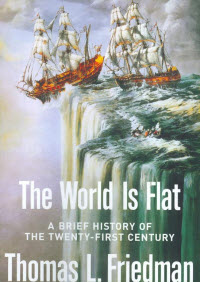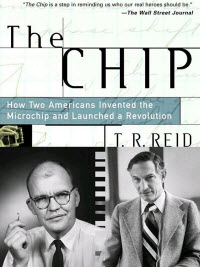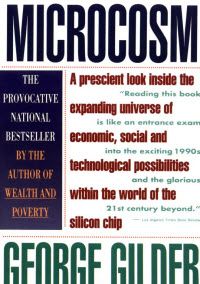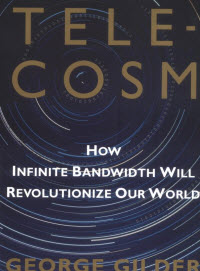 6. The World is Flat: A Brief History of the 21st Century by Thomas Friedman (2005). The globe-trotting Friedman has the best travel budget in the world and he makes good use of it here to deliver anecdotes that show the effects of globalization across the planet. He argues that technology and economic growth have leveled the playing field so that anyone can seize an advantage in commerce. In the global market, old historical and geographical boundaries are irrelevant. The stories about individuals — from the makers of video games in India to the call center operators in China — show how emerging economies have become key parts of the global supply chain. Friedman credits the spread of the web, the collapse of the Berlin Wall, workflow software, outsourcing, offshoring, and the spread of gadgets for producing a change that all Americans will have to adapt to. The key to survival will be making the work force more educated and adaptable.
6. The World is Flat: A Brief History of the 21st Century by Thomas Friedman (2005). The globe-trotting Friedman has the best travel budget in the world and he makes good use of it here to deliver anecdotes that show the effects of globalization across the planet. He argues that technology and economic growth have leveled the playing field so that anyone can seize an advantage in commerce. In the global market, old historical and geographical boundaries are irrelevant. The stories about individuals — from the makers of video games in India to the call center operators in China — show how emerging economies have become key parts of the global supply chain. Friedman credits the spread of the web, the collapse of the Berlin Wall, workflow software, outsourcing, offshoring, and the spread of gadgets for producing a change that all Americans will have to adapt to. The key to survival will be making the work force more educated and adaptable.
 7. The Chip: How Two Americans Invented the Microchip and Launched a Revolution by T.R. Reid (1985). This story chronicles how the electronics revolution began. The story shows the race to create the first integrated circuit, commonly known as a chip, that became the brains of everything electronic. Robert Noyce of Fairchild Semiconductor (and later Intel) and Jack Kilby of Texas Instruments created their own versions of the chip independently. Then the legal wrangling that ensued muddied the waters about who came up with the invention first. I recall reading this book and interviewing the taciturn and humble Kilby about his accomplishments back in Dallas more than two decades ago. He was a gentle giant, while Noyce became the industry’s statesman. In 2000, Kilby received a Nobel Prize for physics.
7. The Chip: How Two Americans Invented the Microchip and Launched a Revolution by T.R. Reid (1985). This story chronicles how the electronics revolution began. The story shows the race to create the first integrated circuit, commonly known as a chip, that became the brains of everything electronic. Robert Noyce of Fairchild Semiconductor (and later Intel) and Jack Kilby of Texas Instruments created their own versions of the chip independently. Then the legal wrangling that ensued muddied the waters about who came up with the invention first. I recall reading this book and interviewing the taciturn and humble Kilby about his accomplishments back in Dallas more than two decades ago. He was a gentle giant, while Noyce became the industry’s statesman. In 2000, Kilby received a Nobel Prize for physics.
 8. Hackers: Heroes of the Computer Revolution by Steven Levy (1984). Levy’s first book coined the term “hacker” and it defined the ethos of the hacker movement as it arose from the counterculture of the 1960s and 1970s. He profiled everyone from Steve Wozniak to Richard Stallman, creator of the free software movement that culminated with Linux. Whether they’ve read the book or not, hackers still hold to the same set of ethics that Levy chronicled decades ago. Even Mark Zuckerberg, who wrote a letter dubbed “The Hacker Way” in Facebook’s initial public offering papers, professes to follow the same set of rules, starting with an open approach to technology. Levy published a 25th anniversary edition of the book and recently talked about it at the Defcon conference in 2011.
8. Hackers: Heroes of the Computer Revolution by Steven Levy (1984). Levy’s first book coined the term “hacker” and it defined the ethos of the hacker movement as it arose from the counterculture of the 1960s and 1970s. He profiled everyone from Steve Wozniak to Richard Stallman, creator of the free software movement that culminated with Linux. Whether they’ve read the book or not, hackers still hold to the same set of ethics that Levy chronicled decades ago. Even Mark Zuckerberg, who wrote a letter dubbed “The Hacker Way” in Facebook’s initial public offering papers, professes to follow the same set of rules, starting with an open approach to technology. Levy published a 25th anniversary edition of the book and recently talked about it at the Defcon conference in 2011.
 9. Microcosm: The Quantum Revolution in Economics and Technology by George Gilder (1990). We take Moore’s Law — the idea that the number of transistors on a chip doubles every couple of years — for granted. But it took the flowery and effusive words of George Gilder to explain the importance of semiconductor technology in driving the modern economy. Gilder is rightly criticized for believing too much in entrepreneurship. He believed that when we hit the billion-transistor chip, the problems of the world would evaporate. We’ve passed that now and we still have a few troubles, but the Microcosm and Moore’s Law haven’t run out of gas yet. This book inspired Mark Pincus, the CEO of Zynga, to move into a career in technology. And now he’s a billionaire.
9. Microcosm: The Quantum Revolution in Economics and Technology by George Gilder (1990). We take Moore’s Law — the idea that the number of transistors on a chip doubles every couple of years — for granted. But it took the flowery and effusive words of George Gilder to explain the importance of semiconductor technology in driving the modern economy. Gilder is rightly criticized for believing too much in entrepreneurship. He believed that when we hit the billion-transistor chip, the problems of the world would evaporate. We’ve passed that now and we still have a few troubles, but the Microcosm and Moore’s Law haven’t run out of gas yet. This book inspired Mark Pincus, the CEO of Zynga, to move into a career in technology. And now he’s a billionaire.
 10. Telecosm: How Infinite Bandwidth Will Revolutionize Our World by George Gilder (2000). It took George Gilder to recognize that the age of the computer, which he had dubbed the Microcosm, was giving way to the age of the Telecosm, or the internet. An endless supply of bandwidth meant that PCs would be hollowed out and an abundance of communications networks would ensue. Gilder took a pounding for hyping the dotcom revolution, particularly as it all came crashing down just as his book was published. He missed a lot and the followers of his Gilder Technology Report paid dearly for overzealous investments during the dotcom meltdown. But the insights in the book, which laid the vision for today’s cloud computing, have stood the test of time. He saw the collapse of telephone companies and the rise of internet empires and handheld computers.
10. Telecosm: How Infinite Bandwidth Will Revolutionize Our World by George Gilder (2000). It took George Gilder to recognize that the age of the computer, which he had dubbed the Microcosm, was giving way to the age of the Telecosm, or the internet. An endless supply of bandwidth meant that PCs would be hollowed out and an abundance of communications networks would ensue. Gilder took a pounding for hyping the dotcom revolution, particularly as it all came crashing down just as his book was published. He missed a lot and the followers of his Gilder Technology Report paid dearly for overzealous investments during the dotcom meltdown. But the insights in the book, which laid the vision for today’s cloud computing, have stood the test of time. He saw the collapse of telephone companies and the rise of internet empires and handheld computers.
